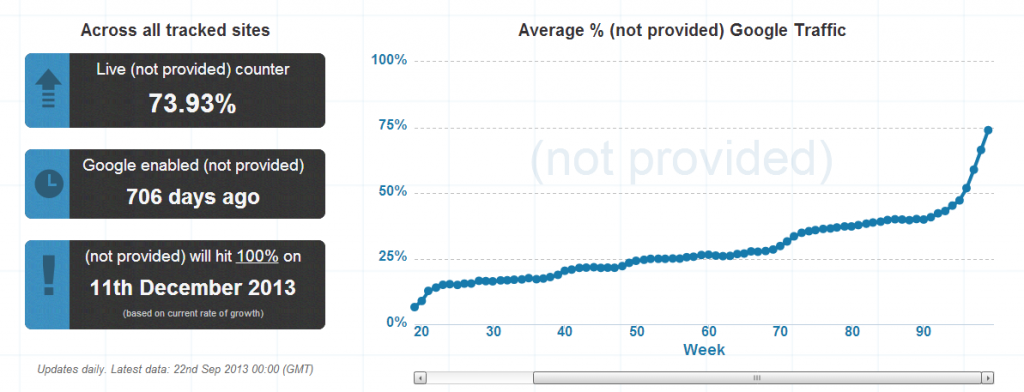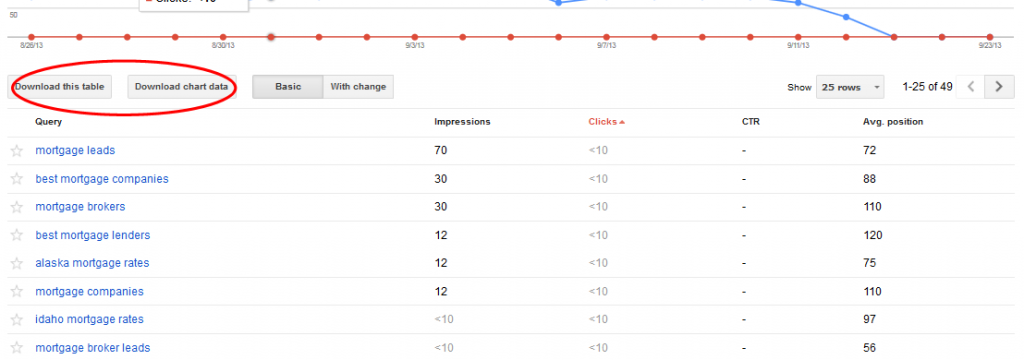Just three days ago, Google did what the online industry is now calling the “keyword apocalypse” – they have begun switching all searches to https and increased the appearance of the keyword (not provided) in Google Analytics. Some marketers report that it has gone up all the way to 95%, and tracking website NotProvidedCount.com estimates that this will rise to 100% by December this year. With this and other measures reportedly being taken by Google to secure search, how can you make up for the data that Google is withholding?
Withholding Information for Security Purposes
Google’s movement towards secure search began two years ago, when they kept the browsing history of logged-in users private. The traffic coming from these users were categorized as (not provided). This resulted in marketers having to adjust data to make room for the information withheld by the search engine giant.
Following the issue with the US National Security Agency (NSA) accusing Google of participating in the PRISM spying program, Google began taking more aggressive steps towards making their process more transparent. This came in the form of a petition that challenged the First Amendment in order to allow them to reveal all requests for data they receive – including ones from the Foreign Intelligence Surveillance Act (FISA).
On the other hand, they also begun making the data they collect from users secure. Three days ago, webmasters and web marketers were abuzz online with observations that their (not provided) keywords increased from 50% to much higher levels, reporting figures between 70-95%. Reports also suggest that Google will make the same move Mozilla Firefox made not too long ago: ban cookies on Chrome and Android as an online ad tracker. Third-party cookies reveal too much about users. According to an anonymous source, Google is developing a more secure alternative. Rob Shilkin, Google’s spokesperson, only went so far to say:
“Technological enhancements can improve users’ security while ensuring the Web remains economically viable. We and others have a number of concepts in this area, but they’re all at very early stages.”
Addressing the Loss of Organic Referral Data
Several functions in your online marketing campaigns will be affected by the loss of organic referral data on Google Analytics. These tasks include:
- Understanding market perception of your clients’ brands by looking at what keywords users key in to find your clients
- Uncovering new keyword ranking opportunities
- Web page / landing page optimization by examining factors like search traffic, conversions, bounce rate, etc. per keyword
- Measuring the effectiveness of your methodology by attributing specific optimization tasks to traffic growth
As online marketers, you’ll need to find alternative resources to make up for this move. Here are a few tips you can begin with:
Find an alternative analytics provider.
Use third-party analytics providers together with Google Analytics. You’ll only be losing information about organic referrals – the rest of GA is still very useful for tracking your campaigns. If you want to keep using Google tools, you can look at Google Webmaster Tools, which provides a list of keywords that potentially drive traffic to your site. However, GWT only keeps this list for 90 days, and then deletes it forever. You’ll need to archive these keywords regularly to track performance effectively. This is easy – just press the “Download this table” or “Download chart data” buttons on top of the keyword table. You can also use AdWords data, but it doesn’t come free – the information is available to users with running campaigns on Google AdWords.
Discover opportunities through page-level analytics.
There are other ways to measure engagement and discover ranking and marketing opportunities. Looking at the pages receiving a high amount of visits and other tracked activities is a good example. While Google won’t be revealing which keywords were the sources of traffic referrals, it will still reveal how much traffic from search each page receives.
The good news for our partners is we still scrape information online and track organic search referrals for our campaigns. You will continue to find these in your monthly executive summary.
Examine your internal site search data.
Aside from using GWT, Google AdWords and third-party analytics programs to get insights on your target audience’s perception of the brand you are building, you can also look at your internal search data to learn two things: what services your audience is most interested in, and what their perception is of the brand you are building. By looking at the keywords that they use to search for the information they want, and cross-referencing these keywords with the traffic reflected on your page-level analytics, you can create your own search referral report and plan ranking and optimization strategies.
Call your account manager today and we will be happy to discuss how we will keep tracking your organic search referrals. If you’re not yet our partner, sign up now to get our free white label reporting dashboard, which features the most complete tracking and other SEO tools for you and your clients. Keep checking back for more updates!



